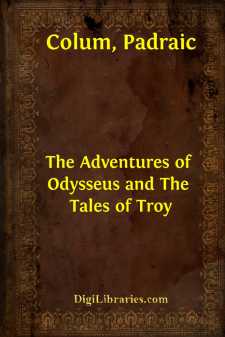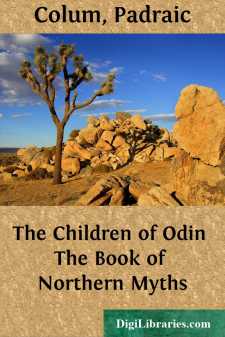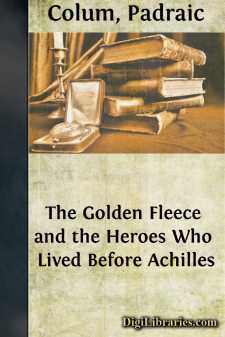Categories
- Antiques & Collectibles 13
- Architecture 36
- Art 48
- Bibles 22
- Biography & Autobiography 813
- Body, Mind & Spirit 142
- Business & Economics 28
- Children's Books 15
- Children's Fiction 12
- Computers 4
- Cooking 94
- Crafts & Hobbies 4
- Drama 346
- Education 46
- Family & Relationships 57
- Fiction 11829
- Games 19
- Gardening 17
- Health & Fitness 34
- History 1377
- House & Home 1
- Humor 147
- Juvenile Fiction 1873
- Juvenile Nonfiction 202
- Language Arts & Disciplines 88
- Law 16
- Literary Collections 686
- Literary Criticism 179
- Mathematics 13
- Medical 41
- Music 40
- Nature 179
- Non-Classifiable 1768
- Performing Arts 7
- Periodicals 1453
- Philosophy 64
- Photography 2
- Poetry 896
- Political Science 203
- Psychology 42
- Reference 154
- Religion 513
- Science 126
- Self-Help 84
- Social Science 81
- Sports & Recreation 34
- Study Aids 3
- Technology & Engineering 59
- Transportation 23
- Travel 463
- True Crime 29
The Adventures of Odysseus and The Tales of Troy
by: Padraic Colum
Categories:
Description:
Excerpt
I
his is the story of Odysseus, the most renowned of all the heroes the Greek poets have told us of—of Odysseus, his wars and his wanderings. And this story of Odysseus begins with his son, the youth who was called Telemachus.
It was when Telemachus was a child of a month old that a messenger came from Agamemnon, the Great King, bidding Odysseus betake himself to the war against Troy that the Kings and Princes of Greece were about to wage. The wise Odysseus, foreseeing the disasters that would befall all that entered that war, was loth to go. And so when Agamemnon's messenger came to the island of Ithaka where he was King, Odysseus pretended to be mad. And that the messenger, Palamedes, might believe he was mad indeed, he did a thing that no man ever saw being done before—he took an ass and an ox and yoked them together to the same plough and began to plough a field. And when he had ploughed a furrow he sowed it, not with seeds that would grow, but with salt. When Palamedes saw him doing this he was nearly persuaded that Odysseus was mad. But to test him he took the child Telemachus and laid him down in the field in the way of the plough. Odysseus, when he came near to where the child lay, turned the plough aside and thereby showed that he was not a mad man. Then had he to take King Agamemnon's summons. And Agamemnon's word was that Odysseus should go to Aulis where the ships of the Kings and Princes of Greece were being gathered. But first he was to go into another country to seek the hero Achilles and persuade him also to enter the war against Troy.
And so Odysseus bade good-bye to his infant son, Telemachus, and to his young wife Penelope, and to his father, old Laertes. And he bade good-bye to his house and his lands and to the island of Ithaka where he was King. He summoned a council of the chief men of Ithaka and commended to their care his wife and his child and all his household, and thereafter he took his sailors and his fighting men with him and he sailed away. The years went by and Odysseus did not return. After ten years the City was taken by the Kings and Princes of Greece and the thread of war was wound up. But still Odysseus did not return. And now minstrels came to Ithaka with word of the deaths or the homecomings of the heroes who had fought in the war against Troy. But no minstrel brought any word of Odysseus, of his death or of his appearance in any land known to men. Ten years more went by. And now that infant son whom he had left behind, Telemachus, had grown up and was a young man of strength and purpose.
ne day, as he sat sad and disconsolate in the house of his father, the youth Telemachus saw a stranger come to the outer gate. There were many in the court outside, but no one went to receive the newcomer. Then, because he would never let a stranger stand at the gate without hurrying out to welcome him, and because, too, he had hopes that some day such a one would bring him tidings of his father, Telemachus rose up from where he was sitting and went down the hall and through the court and to the gate at which the stranger stood....








